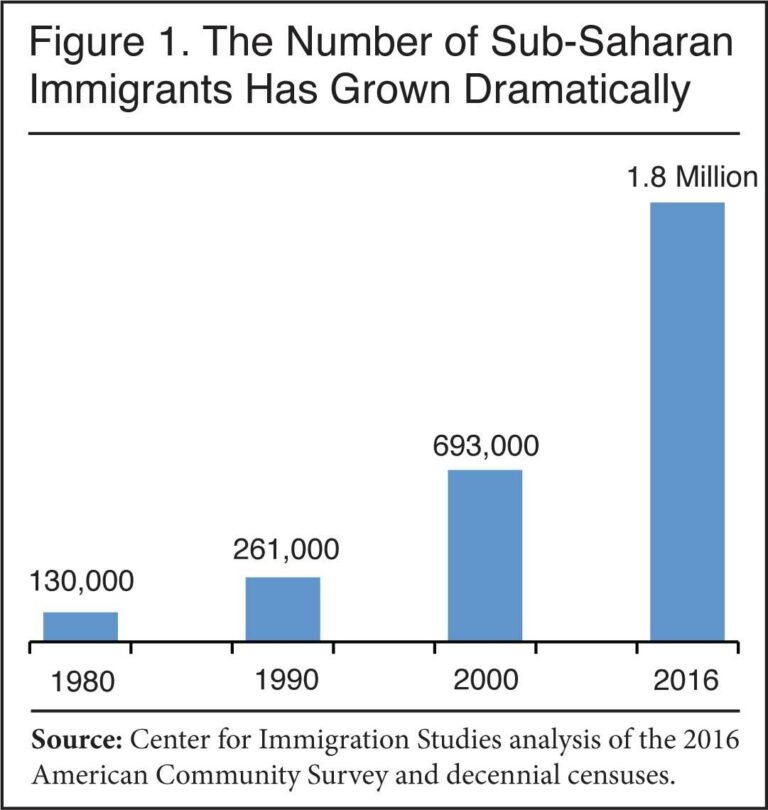Educational Excellence Among African Immigrants in the U.S.: A Closer Look
Surpassing Expectations: African Immigrants Lead in Academic Achievement
New research reveals that African immigrants in the United States exhibit remarkably high educational attainment, often exceeding that of native-born Americans and many other immigrant groups. This insight, brought to light by recent studies, challenges widespread stereotypes about immigrant populations and highlights the vital role African migrants play in enriching the countryŌĆÖs labor market and economic vitality. As immigration debates continue, these findings emphasize the importance of recognizing the academic accomplishments within African immigrant communities.
Several elements contribute to this impressive trend:
- Selective immigration policies that prioritize skilled professionals and students.
- Robust community networks that foster academic encouragement and support.
- Access to targeted scholarships and educational programs designed for immigrant populations.
| Demographic Group | Percentage with BachelorŌĆÖs Degree or Higher |
|---|---|
| African Immigrants | 48% |
| Native-Born Americans | 32% |
| Asian Immigrants | 54% |
| Hispanic Immigrants | 18% |
Unpacking the Drivers Behind African ImmigrantsŌĆÖ Educational Success
The elevated levels of education among African immigrants stem from a combination of immigration policies, cultural values, and social dynamics. A large share of African migrants enter the U.S.through visa categories that emphasize advanced degrees or specialized expertise, naturally selecting for highly educated individuals. Beyond policy, many African cultures place a strong emphasis on education as a means to achieve upward mobility and economic security.
Economic aspirations also play a crucial role. For many African immigrants, academic credentials are essential tools to navigate systemic challenges and secure stable livelihoods in a new surroundings. Moreover, well-established African immigrant communities provide mentorship, resource sharing, and encouragement, creating a supportive ecosystem that nurtures academic and professional growth. This is evident across diverse sectors such as technology, healthcare, and academia.
- Immigration criteria that favor skilled and educated applicants
- Cultural prioritization of education and continuous learning
- Community-based support systems offering guidance and resources
- Economic incentives driving credential acquisition
| Influencing Factor | Effect on Educational Attainment |
|---|---|
| Visa Policies | Favor applicants with advanced qualifications |
| Cultural Expectations | Strong focus on scholastic achievement |
| Community Networks | Provide mentorship and educational support |
| Economic Drivers | Motivate pursuit of higher education |
Impact on the U.S. Economy and Workforce Advancement
The advanced educational qualifications of African immigrants offer a strategic advantage for the U.S. economy, particularly in addressing skill shortages in critical industries. Their expertise in STEM fields and healthcare not only fills essential roles but also stimulates innovation and entrepreneurship, contributing to job creation and economic diversification. For example, African immigrant entrepreneurs have been instrumental in launching tech startups and healthcare initiatives in metropolitan areas, fostering local economic growth.
Key advantages include:
- Boosted productivity through specialized knowledge and skills
- Enhanced workplace diversity,enriching cultural and intellectual perspectives
- Expansion of small businesses and startups,especially in underserved communities
To fully capitalize on these benefits,policies must address challenges such as the recognition of foreign credentials and workplace inclusion. The following projections illustrate the potential economic impact if current trends continue:
| Sector | Expected Growth | Economic Contribution |
|---|---|---|
| STEM Fields | 15% increase over five years | $10 billion GDP growth |
| Entrepreneurship | 20% rise in startups | 150,000 new jobs created |
| Healthcare | 12% growth in professionals | Improved public health outcomes |
Strategies for Enhancing Integration and Credential Recognition
To unlock the full potential of African immigrantsŌĆÖ educational backgrounds, extensive reforms are necessary to streamline the validation of foreign degrees and facilitate their seamless entry into the U.S. workforce. Presently, many international qualifications are undervalued or overlooked, hindering skilled immigrants from working in their trained professions. Implementing a standardized,transparent,and expedited credential evaluation system would substantially reduce these barriers.
Moreover, targeted initiatives are essential to bridge socio-economic gaps and promote equitable access to career opportunities.Recommended actions include:
- Creation of centralized credential verification hubs to ensure quick and reliable assessment of foreign academic credentials.
- Expansion of language proficiency and professional development programs tailored to immigrant needs, enhancing employability.
- Strengthening collaborations between government bodies and employers to encourage inclusive hiring practices that value diverse educational experiences.
- Increased funding for community organizations that provide integration support and career guidance.
| Policy Focus | Recommended Initiative | Expected Outcome |
|---|---|---|
| Credential Assessment | Develop a national registry of accredited foreign institutions | Accelerated degree recognition |
| Workforce Inclusion | Implement mentorship and apprenticeship programs | Higher employment rates among skilled immigrants |
| Language & Skills Training | Broaden ESL and vocational training offerings | Improved communication and job performance |
Looking Ahead: Embracing the Educational Strength of African Immigrants
This comprehensive analysis highlights how African immigrants defy common narratives by achieving extraordinary educational milestones in the United States.Their academic success not only enriches the nationŌĆÖs skilled labor pool but also reflects the intricate interplay of migration, culture, and prospect. Recognizing and supporting these achievements is essential for crafting informed immigration policies and fostering an inclusive society that values diverse contributions to AmericaŌĆÖs future.




